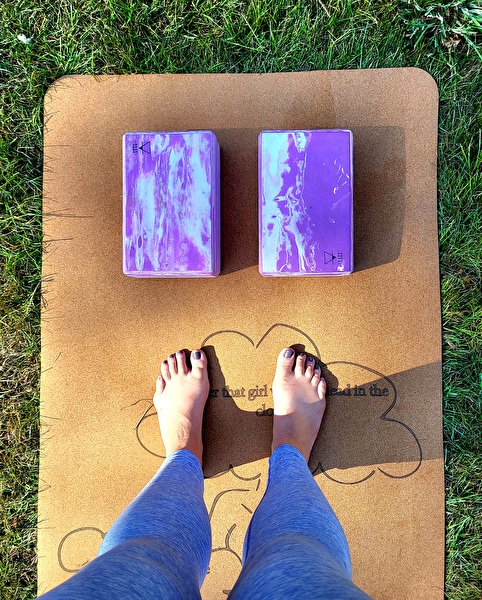
By Bex Stirling
I came to yoga in my twenties when I realised that years of ballet training as a child had made me flexible and, initially, I liked it quite simply because I thought I was good at it.
However, over three quite difficult years, involving a global pandemic and struggles with my mental health, I learnt that yoga was about so much more than being bendy – it provided many ways to help me manage the highs and lows of agency life.
The obvious one – boosting physical health
Musculoskeletal disorders affecting bones, muscles, ligaments, and tendons account for 40 percent of all UK sickness absences. This equates to huge productivity losses, totalling over 9.5 million working days lost a year.
Spending hours at a desk, hunching over laptops and not moving enough for nearly eight hours a day can make even those active outside of the workplace stiff and less agile.
Yoga poses keep an overall mobility in the body that would otherwise stiffen up with age. Regular practice keeps the joints supple and the muscles long, keeping degenerative conditions at bay.
Asana (physical yoga poses) also works on the internal body. As the body is bent and stretched, it influences the functioning of our organs as well as our cardiovascular, endocrine, and nervous systems.
Being present and regulating the nervous system
Working in PR is all about spinning plates. It requires constant stimulation and action while juggling an ever-growing to-do list. It can be difficult to maintain focus and stay calm with so much going on every day, five days a week.
My yoga practice is often the only part of my day where I have a solid hour to focus solely on moving my body and controlling my breath. The use of breathing exercises and mental focus helps to calm and soothe my mind and offers a welcome break from the stresses of the day.
Staying in the present moment is a great way to help control a constantly wandering mind and improve concentration. Often, when I am faced with challenging tasks at work, I try to stay focused on what’s within my power right now – like yoga- where my sole aim is on linking movement with breath at that moment.
Concentrating on the present, instead of thinking about what could go wrong and how much I must do, helps me to work more efficiently, be more productive and waste less energy worrying about the future.
Yoga is a strong antidote to stress because it up-regulates the parasympathetic nervous system – the system responsible for bringing us back to balance. It allows the body to ‘rest and digest’ and encourages healing by telling the muscles to relax.
Yoga gives me time in my day to relax, breathe and cherish moments of calm in my busy, often challenging day. I’ve noticed if I don’t make the time in my day to consciously unwind or decrease stress levels that I quickly become overwhelmed.
I need to mention here that even if you’ve decided yoga is not for you, it’s still important to find things that help you relax and tap into your parasympathetic nervous system during or after the working day. Whether it’s going out for a walk, reading a good book or having a calming bath, make sure to prioritise time for your self-care every day.
Feeling gratitude
Most of modern yoga’s attention is centred on The Yoga Sutras of Patanjali. The Sutras detail the ‘eight limbs’ of yoga, which describe how to live a balanced and ethical life.
To clarify, all 8 limbs are considered equally important but one that currently stands out to me when it comes to agency life is called Santosa, which means ‘contentment’. Contentment is a real challenge for many of us because modern culture leaves us always wanting more.
Throughout my life and career, I’ve always focused on ‘what’s next’. I’ve taken very little time to sit back and appreciate what I already have and have often found myself annoyed, upset and even at times jealous, if I haven’t achieved what I thought I wanted or deserved.
However, existing in a state of constant dissatisfaction and comparison isn’t good for anyone’s mental wellbeing or self-worth. A practice of expressing gratitude or ‘contentment’ can help us feel better about the good things we do (already) have in our lives.
The power of gratitude on psychological wellbeing, relationships, and physical health, is huge. Research shows those who practise gratitude have better immune systems, lower blood pressure, higher levels of positive emotions, and feel less lonely.
If I’ve had a difficult day, I take about half an hour after work to journal and write down the things I am most grateful for. Sometimes, it’s something as simple as the sun being out, having a catch-up with a colleague or getting a great piece of coverage for a client that helps me realise the day hasn’t actually been a total flop.
Yoga as a lifestyle, may not be for everyone. But I do think it has helped me better manage some of the struggles that come with agency life. I also believe there are elements of it – whether it’s the physical practice, taking time to be present or even just trying to have a more positive outlook – that can help everyone lead a happier, healthier life.


